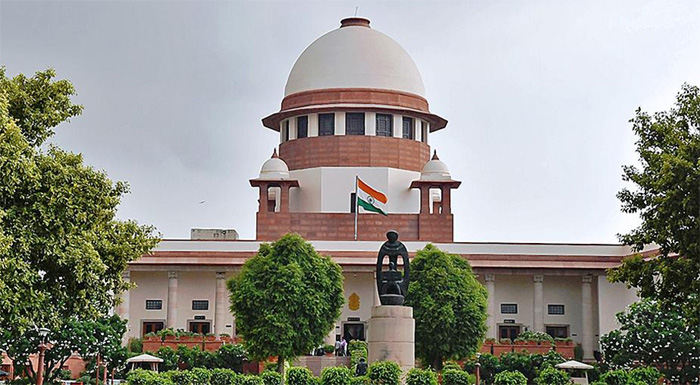SC dubs ‘Affair’, ‘Housewife’ and several words as stereotypical, suggests alternatives. See full list
The Supreme Court on Wednesday unveiled a handbook mentioning the words which perpetuate gender stereotypes and should be avoided in court language.
“The Handbook on Combating Gender Stereotypes aims to assist judges and the legal community in identifying, understanding and combating stereotypes about women. It contains a glossary of gender-unjust terms and suggests alternative words or phrases which may be used while drafting pleadings as well as orders and judgments”, Chief Justice of India DY Chandrachud said.
Here is the list of words identified as the one ‘promoting stereotype’ by the top court and the alternate phrases recommended as well.
| STEREOTYPE PROMOTING LANGUAGE (INCORRECT) | ALTERNATIVE LANGUAGE (PREFERRED) |
|---|---|
| Adulteress | Woman who has engaged in sexual relations outside of marriage |
| Affair | Relationship outside of marriage |
| Bastard | Non-marital child or a child whose parents were not married |
| Biological sex/biological male/biological female | Sex assigned at birth |
| Born a girl/boy | Assigned female/male at birth |
| Career woman | Woman |
| Carnal intercourse | Sexual intercourse |
| Chaste woman | Woman |
| Child prostitute | Child who has been trafficked |
| Concubine/keep | Woman with whom a man has had romantic or sexual relations outside of marriage |
| Dutiful wife/faithful wife/good wife/obedient wife | Wife |
| Easy virtue (e.g a woman of easy virtue) | Woman |
| Effeminate (when used pejoratively) | Accurately describe the characteristic using a gender neutral term (e.g confident or responsible) |
| Eve teasing | Street sexual harassment |
| Faggot | Accurately describe the individual’s sexual orientation (e.g homosexual or bisexual |
| Fallen woman | Woman |
| Feminine hygiene products | Menstrual products |
| Forcible rape | Rape |
| Harlot | Woman |
| Hermaphrodite | Intersex |
| Hooker | Sex worker |
| Hormonal (to describe a woman’s emotional state) | Use a gender neutral term to describe the emotion (e.g compassionate or enthusiastic) |
| Housewife | Homemaker |
| Indian woman/western woman | Woman |
The handbook identifies common stereotypes by women, many of which have been utilised by courts in the past and demonstrates why they are inaccurate and how they may distort the application of the law, the chief justice of India said. Here are more words identified as those promoting stereotypes.
| STEREOTYPE PROMOTING LANGUAGE (INCORRECT) | ALTERNATIVE LANGUAGE (PREFERRED) |
|---|---|
| Ladylike | Use a gender neutral description of behaviour or characteristics (e.g amusing or assertive) |
| Layabout/Shirker | Unemployed |
| Marriageable age | A woman who has attained the legal age required to marry |
| Mistress | Woman with whom a man has had romantic or sexual relations outside of marriage |
| Prostitute | Sex worker |
| Provider/Breadwinner | Employed or earning |
| Provocative clothing/dress | Clothing/dress |
| Ravished (e.g she was “ravished” by him) | Sexually harassed/assaulted or raped |
| Seductress | Woman |
| Sex change | Sex reassignment or gender transition |
| Slut | Woman |
| Spinster | Unmarried woman |
| Survivor or victim? An individual who has been affected by sexual violence may identify themselves as either a “survivor” or “victim”. Both terms are applicable unless the individual has expressed a preference in which case the individual’s preference should be respected. | |
| Transsexual | Transgender |
| Transvestite | Cross-dresser |
| Unwed mother | Mother |
| Violated (e.g he violated her) | Sexually harassed/assaulted or raped |
| Whore | Woman |
| Woman of loose morals/easy virtue/promiscuous woman/wanton woman | Woman |
“Stereotypes are typically held against individuals by virtue of their membership of a group. They are assumptions or beliefs that individuals belonging to specific social groups have certain characteristics or traits”, the handbook read.

